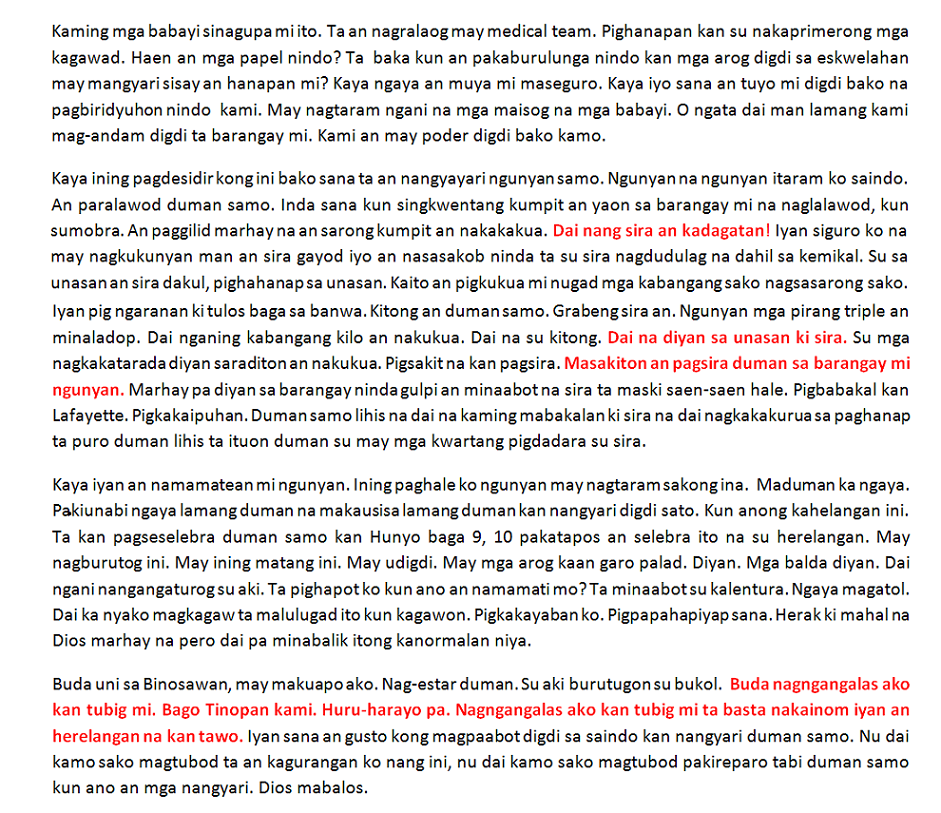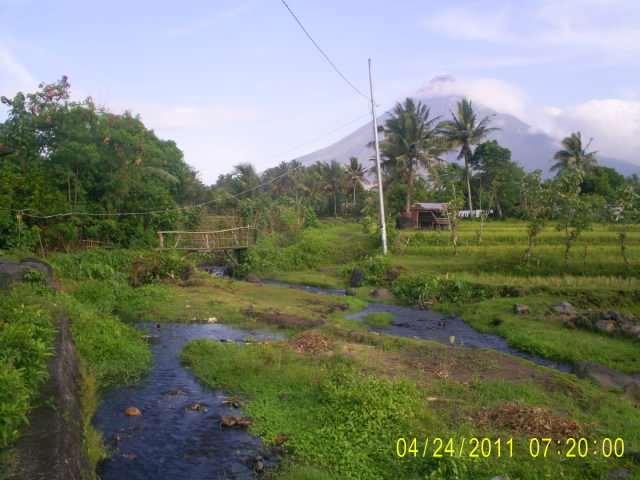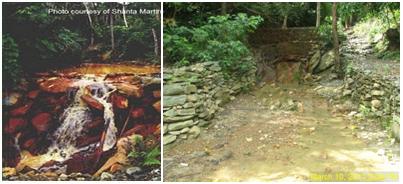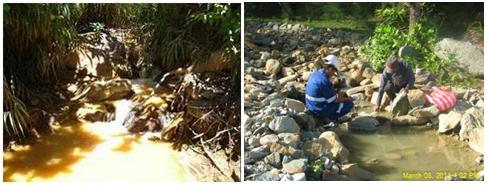http://www.devp.org/devpme/eng/advocacy/philippinesimmersion-eng.html
 Solidarity in action
Solidarity in actionFor two weeks from May 29th to June 12, 2007, six members de Development and Peace (Suzan Goguen, John Mulrooney, Dick and Dorothy Mynen, Barry Nelson and Mike Wells) and three animators (Shelley Burgoyne, Paul Corcoran and Luke Stocking) were exposed to some to pretty unique experiences of life while on an immersion (or familiarization) visit to the Philippines. Here Luke Stocking provides us with a brief glimpse into three communities where they stayed, and which included one affected by irresponsible mining practises, one devastated by poor forestry practises, and another highlighting the challenges of life in an overcrowded urban slum or shantytown.
D&P Philippines Exposure Trip : This is What Solidarity Looks Like!
"Mabuhay!" We all cheered as our photo was taken; six members and three staff of Development and Peace surrounded by people from our nine partner organizations in the Philippines. It was the end of a night of sharing stories of our work for social change, both in Canada and in the Philippines. But it was only the beginning of this exposure trip.
What exactly is an exposure trip? Nothing less than an exercise in building global solidarity. Every year members of Development and Peace from different regions of the country go on partially subsidized trips to the global south. Here they meet, are exposed to and are inspired by our partners and the work they are doing. Then they carry these stories back to Canada along with the relationships they have formed. This particular trip was from primarily formed of members from British Columbia. That said, two of us were from the east (Halifax and Toronto) and so Canada was represented coast to coast. During our trip we visited three different areas of the Philippines: Manila, the capital, Quezon Province, and an island called Rapu Rapu.
Inequality - the Numbers
With a population of 86 million people, the Philippines is a country of deep poverty and great inequality. 80% of the population survives on $2 or less a day. Over half the population fails to have its dietary needs met on a daily basis. Meanwhile, the top 20% of the population earns 53% of the country’s total income. This reality was ever present during our trip.
 Manila – City of contrasts
Manila – City of contrastsThrough a Development and Peace partner, the Urban Poor Association (UPA), residents of the Manila slums invited us to spend the night in their homes, in many cases giving us their own beds. UPA has empowered these poorest of the poor to successfully fight for their rights when it comes to facing things such as eviction and relocation by the national government. “UPA is our backbone. They give us the courage to organize ourselves,” said one host named Jeorgie.
 Quezon Province – Struggles to survive
Quezon Province – Struggles to survive"Livelihood" This was the need we heard over and over again as we toured three communities in Quezon province with our partner Center for Environmental Concerns (CEC). Landslides and flooding in late 2004 not only killed over 2000 people, it left the land and water virtually sterile, making it impossible for people to have a real livelihood. CEC was invited by the people to conduct a fact-finding mission into the causes and effects of the landslide and to make it public. Their findings: Heavy logging in the area led to soil erosion that could not hold up against the typhoons. They are also currently working on creating an early warning device that communities can use to avoid similar calamities.
Rapu Rapu – irresponsible mining in action
With CEC again leading us, we visited this small, mountainous island in the Albay Gulf, which is home to the flagship mining project of the Philippines, owned by Australian company Lafayette Mining. In October of 2005, spills from the mine’s tailings dam poisoned local water sources, leading to skin disease, water scarcity and killing of the fish that were the livelihood of the local villagers. Bishop Arturo Bastes of Sorsogon, as well as Fr. Felinio Bugauisan have provided invaluable leadership for the people of Rapu Rapu struggling against the environmental degradation caused by this mine.
"Your Help Has Gone a Long Way"
These words…said Dr. Tess, CEC Trustee, warmed our hearts. It was the end of our trip and our "solidarity night" celebration. We danced and sang with the people who had shared with us their lives, their struggles and their hope for change.
Now that we have returned, our real work has begun. Without exception all nine of us have been inspired to share our experiences with Canadians. We now begin the task of bringing the good news of what our partners in the Philippines are accomplishing with the people, despite overwhelming obstacles against them. As we live this Global Solidarity experience, we pray that our work will indeed to continue to go a long way.
'Mabuhay' is a Tagalog word translated roughly as 'Long Live!' It is a word of hope and expression of solidarity.
So together we cry, "Mabuhay Philippines!"
































































































































No comments:
Post a Comment